Autonomous Driving: What It Means for the Future of Car Rentals
6 January 2025
The world is changing fast, and one of the most exciting areas of innovation is autonomous driving. What was once just a dream in sci-fi movies is now becoming a reality, and it could revolutionize entire industries. One industry that could see a radical transformation? Car rentals. Imagine pulling out your phone, summoning a self-driving car, and hopping in, all without needing a human driver or even stepping foot into a rental office.
But what does autonomous driving really mean for car rentals? How will this emerging technology shape the future of the industry? Let’s take a deep dive into what autonomous driving is, how it’s rapidly advancing, and what it could mean for the world of car rentals.
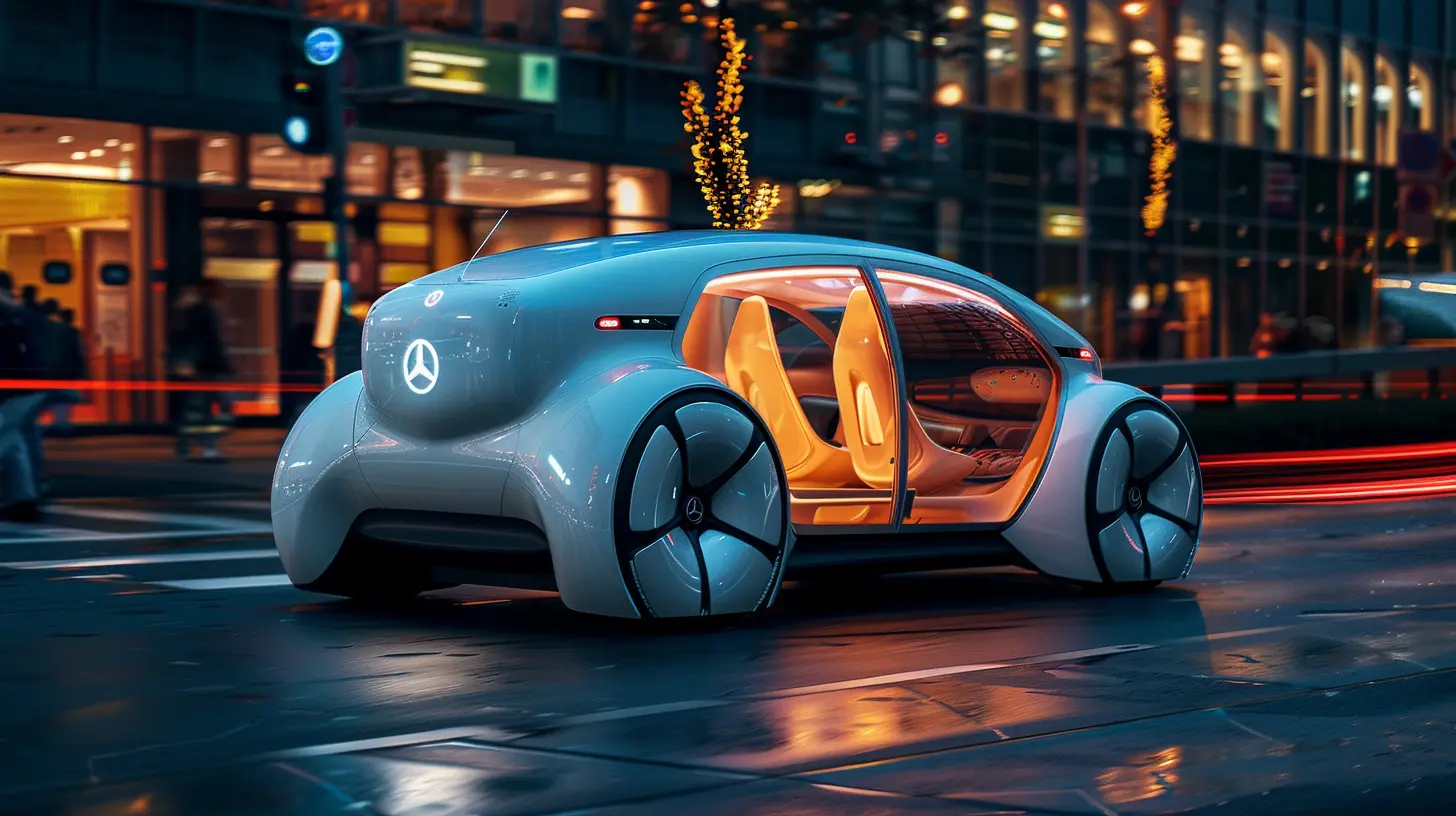
What Is Autonomous Driving?
Before we speed into the future, let’s park for a moment and talk about what autonomous driving actually is. Autonomous vehicles (AVs), often referred to as self-driving cars, are vehicles capable of navigating and driving themselves without human intervention. They use a combination of sensors, cameras, radar, and artificial intelligence (AI) to interpret their surroundings and make driving decisions.These vehicles come in different levels of autonomy, from driver-assistance features (like cruise control) to fully autonomous cars that don't even need a steering wheel.
The Levels of Autonomous Driving
There are six levels of autonomy, as defined by the Society of Automotive Engineers (SAE). Here's a quick breakdown:- Level 0 (No Automation): The driver is fully in control of the vehicle.
- Level 1 (Driver Assistance): Basic driver assistance, like adaptive cruise control, but the driver must stay engaged.
- Level 2 (Partial Automation): The car can handle some functions (steering, acceleration) but still requires human oversight.
- Level 3 (Conditional Automation): The car can drive itself in specific situations, but the driver must be ready to take over.
- Level 4 (High Automation): The car can drive itself in most situations, though a driver might need to intervene in extreme conditions.
- Level 5 (Full Automation): No human intervention is needed at all. The car is fully autonomous.
Right now, we’re somewhere between Levels 2 and 3, but many tech companies and automakers are racing toward Level 5. Once we hit full automation, the potential for disruption in the car rental industry is enormous.
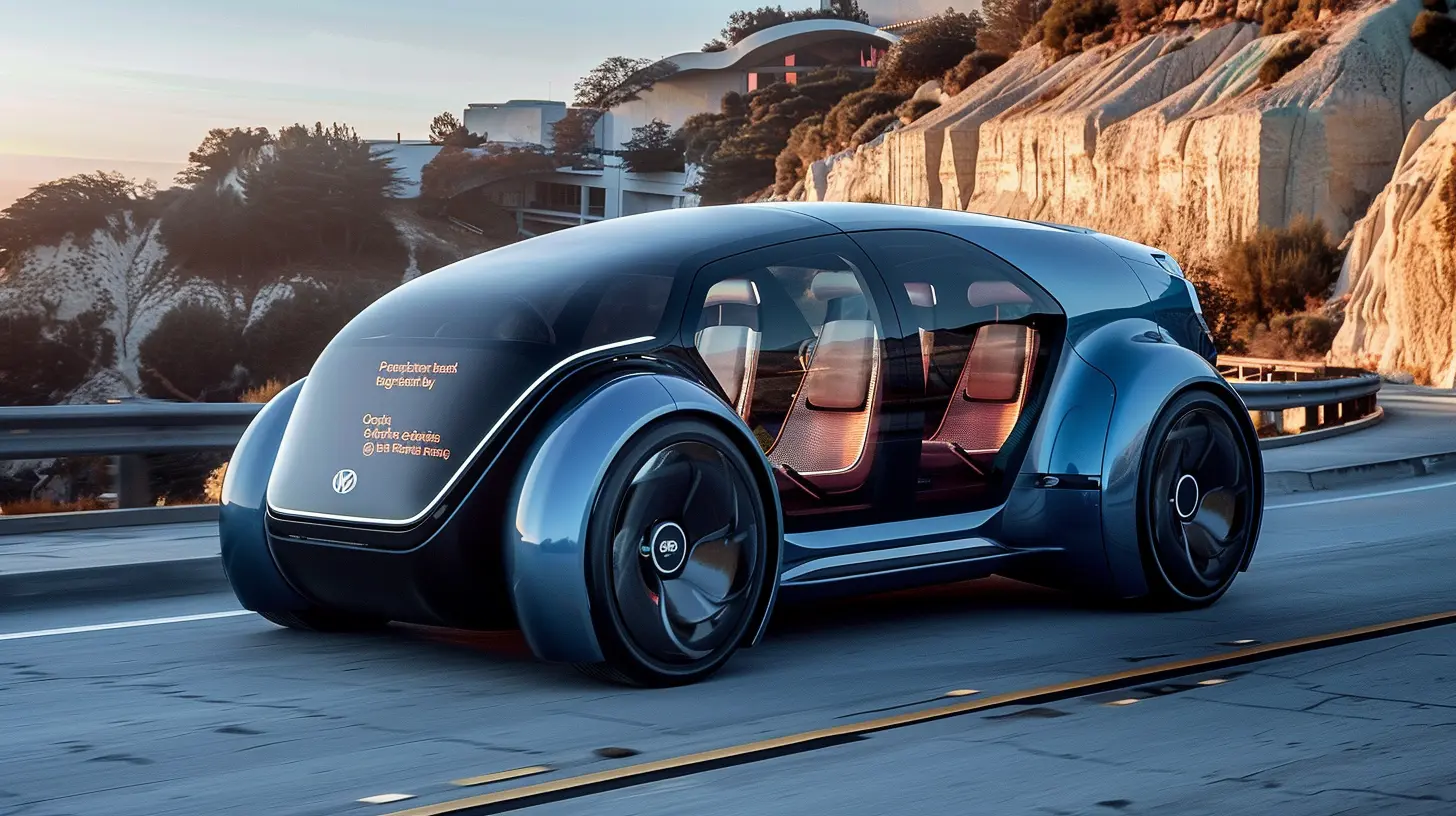
How Autonomous Driving Could Disrupt Car Rentals
So, what does this all mean for car rentals? In short, a lot. The autonomous driving revolution could change the way people rent cars, from the booking process to the driving experience itself. Let's explore some key shifts we could see.1. No More Rental Counters
Raise your hand if you’ve ever stood in line at a car rental counter, waiting for what feels like an eternity to get your keys. Now, imagine a world where you don't need to interact with a human at all. Autonomous driving could eliminate the need for physical rental locations. Instead, you could simply order a car from your phone, and it would drive itself to your location. No humans, no lines, no hassle.This could be particularly useful for airports, where travelers often spend precious time navigating through rental car kiosks. With autonomous vehicles, your rental car could be waiting for you at the curb as soon as you land.
2. Lower Costs for Customers
Car rentals could become more affordable with self-driving technology. One of the major expenses for traditional rental car companies is the cost of maintaining large fleets and paying for human labor (like drivers and customer service representatives). By eliminating these costs, companies could pass the savings on to customers.Plus, autonomous vehicles are designed to be more efficient in terms of fuel consumption and maintenance, which could reduce operational costs even further. In the long run, this could make renting a car much cheaper than it is today.
3. Flexible, On-Demand Rentals
Autonomous driving could introduce a new level of flexibility to car rentals. Right now, renting a car typically involves picking it up from one location and dropping it off at another. But with autonomous vehicles, rentals could become fully on-demand. Need a car for just 20 minutes to scoot across town? No problem. Want to rent a luxurious self-driving car for a cross-country road trip? Easy.The concept of owning a car could become obsolete for many people, especially in urban areas. Instead, they could rely on autonomous rental cars for all their transportation needs, paying only for the time they actually use the vehicle.
4. Improved Safety and Convenience
One of the biggest promises of autonomous driving is improved safety. Human error accounts for the vast majority of car accidents, but autonomous vehicles have the potential to drastically reduce these incidents. With self-driving cars, you wouldn’t have to worry about reckless drivers, drunk driving, or distracted driving. The car would handle everything for you, providing a safer and more convenient experience.For car rentals, this could mean fewer accidents and lower insurance costs. It could also open up car rentals to people who might not otherwise be able to drive, such as the elderly or those with disabilities. The convenience of having a car drive itself could make car rentals accessible to a much broader audience.
5. New Business Models and Partnerships
Autonomous driving could also lead to new business models in the car rental industry. For example, rental companies could partner with tech companies to offer premium autonomous car services. Imagine being able to choose between different tiers of self-driving cars, from budget-friendly models to luxurious, AI-powered vehicles designed for long trips.We could also see the rise of subscription-based car rental services, where users pay a monthly fee in exchange for access to a fleet of autonomous vehicles. This would be similar to how streaming services like Netflix work, but for transportation. Instead of owning a car, you’d subscribe to a car rental service and have access to a vehicle whenever you need it.
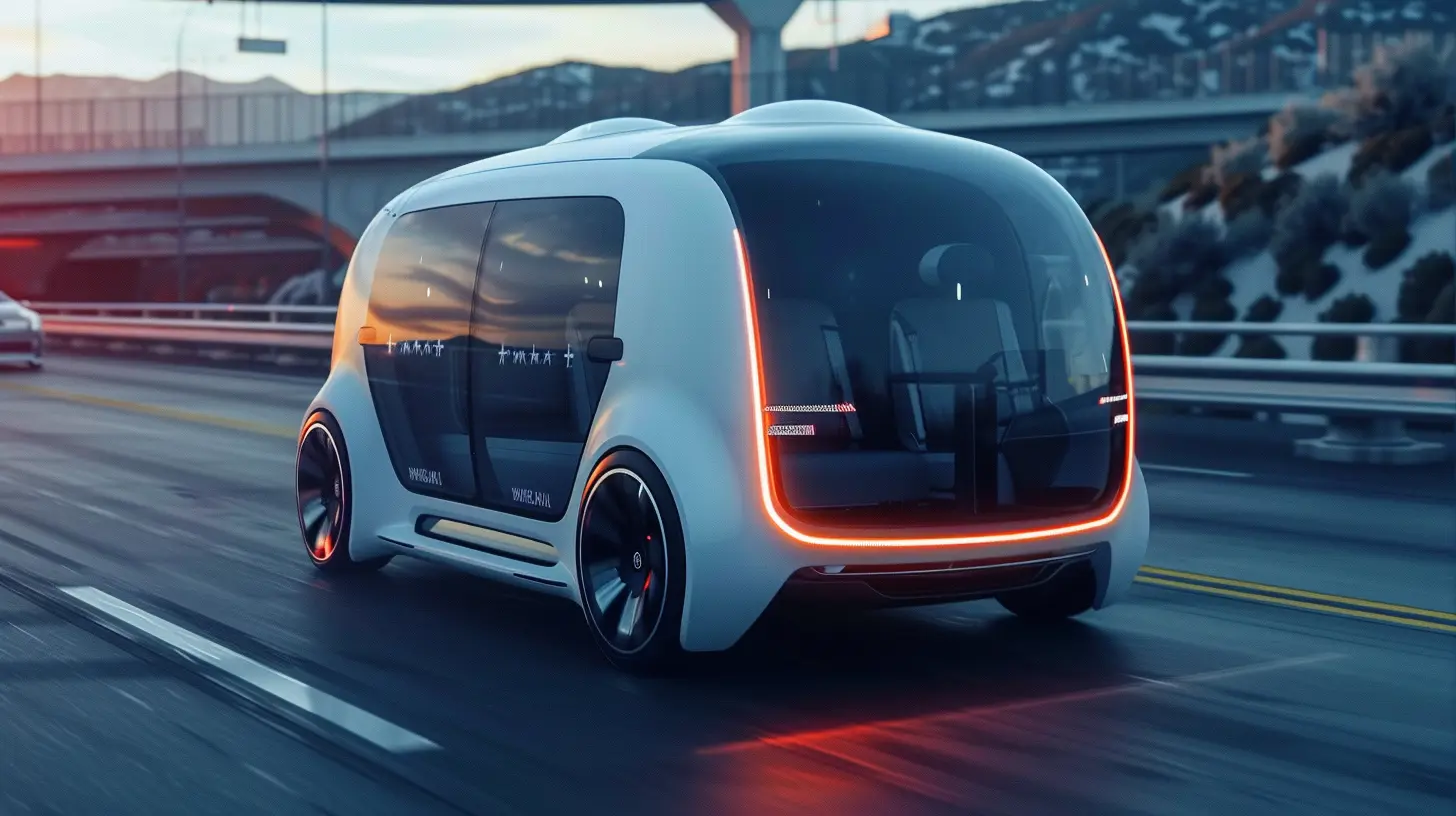
Challenges That Autonomous Driving Brings to Car Rentals
Of course, while the potential is huge, there are also some significant challenges that come with the advent of self-driving cars in the rental market. Let’s not gloss over the hurdles.1. Regulation and Legal Issues
One of the biggest roadblocks (pun intended) for autonomous driving is regulation. Governments around the world are still figuring out how to regulate self-driving cars, and there’s a lot of uncertainty about who is liable in the event of an accident. Is it the car manufacturer? The software developer? The rental company?These legal questions will need to be ironed out before autonomous driving can become mainstream in the car rental industry.
2. Public Acceptance
While many people are excited about autonomous driving, others are still skeptical. Some worry about the safety of self-driving cars, while others simply enjoy the act of driving and aren't ready to give it up. For car rental companies to fully embrace autonomous vehicles, they’ll need to address these concerns and convince customers that self-driving cars are safe, reliable, and enjoyable to use.3. Cybersecurity Risks
With self-driving cars relying heavily on software and connectivity, cybersecurity is a major concern. Hackers could potentially take control of autonomous vehicles, posing a serious threat to passengers, pedestrians, and other drivers. Car rental companies will need to invest heavily in cybersecurity to ensure that their fleets of autonomous vehicles are secure from cyber-attacks.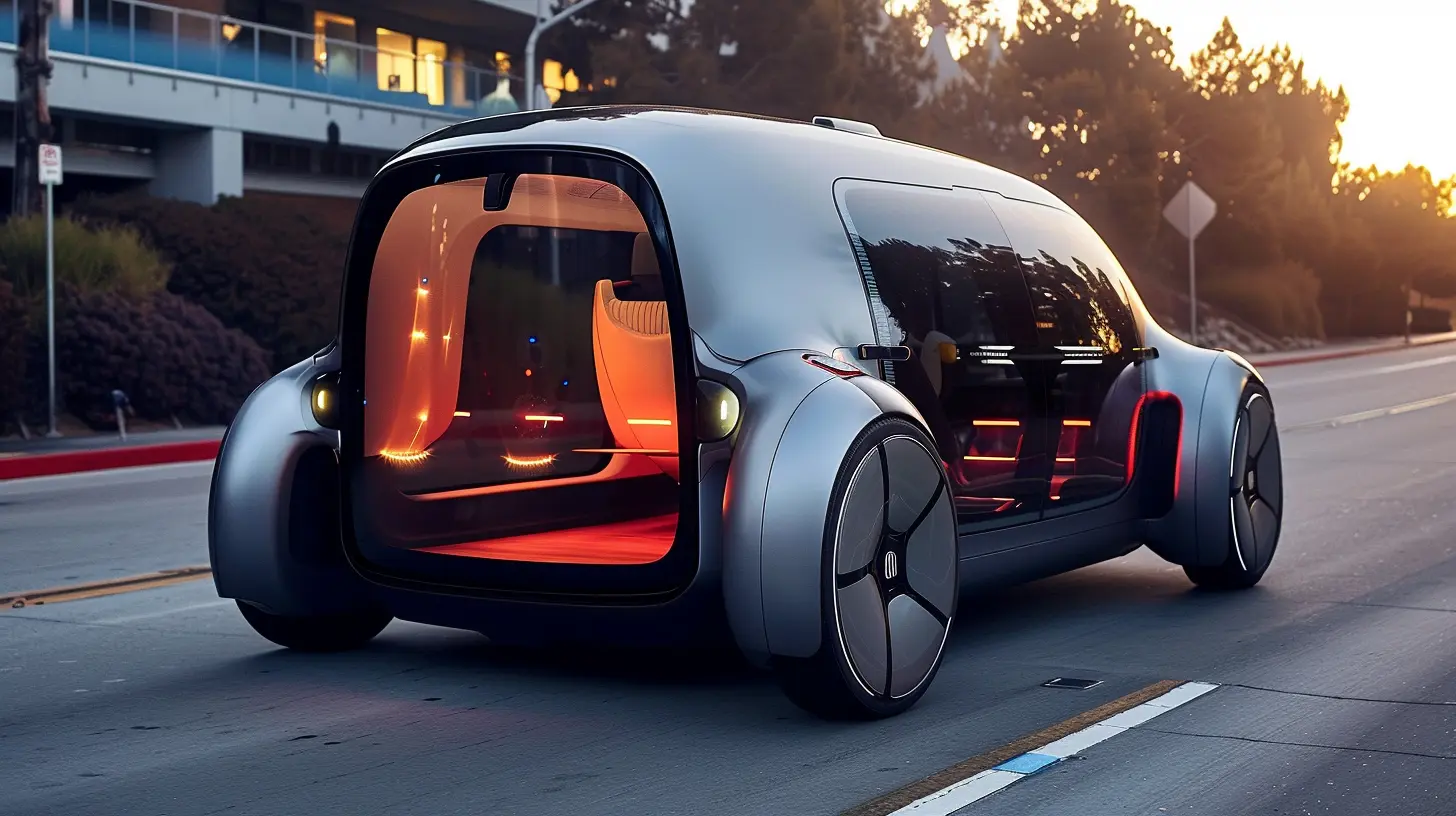
The Road Ahead: What To Expect
So, where does this leave us? While fully autonomous cars aren’t mainstream just yet, we’re getting closer every day. Companies like Tesla, Google’s Waymo, and Uber are already testing self-driving cars, and it’s only a matter of time before they become a common sight on the roads.In the future, it’s likely that car rental companies will shift away from traditional rental models and embrace the world of autonomous vehicles. This shift will bring with it greater convenience, lower costs, and new business opportunities, but it will also require the industry to overcome significant challenges.
Ultimately, the future of car rentals in the age of autonomous driving looks bright — and it might be closer than you think. So, buckle up, because we’re in for an exciting ride!
all images in this post were generated using AI tools
Category:
Autonomous VehiclesAuthor:

John Peterson
Discussion
rate this article
18 comments
Craig McIntire
As autonomous driving reshapes mobility, car rentals may evolve into seamless, on-demand services, challenging ownership norms and redefining urban transport. This shift could encourage sustainability while fostering a new paradigm in personal freedom and convenience.
February 5, 2025 at 5:05 AM

John Peterson
Thank you for your insightful comment! I completely agree that autonomous driving will revolutionize car rentals, enhancing convenience and promoting sustainable urban mobility.
Maisie Gill
Autonomous driving could revolutionize car rentals by enhancing convenience and accessibility, but challenges around safety, regulation, and consumer acceptance must be addressed for widespread adoption.
January 28, 2025 at 1:47 PM

John Peterson
Absolutely! While autonomous driving holds immense potential to transform car rentals, addressing safety, regulation, and consumer trust is crucial for successful implementation.
Finley McClellan
Great insights! It's important to consider the human side of autonomous driving, especially how it impacts jobs and accessibility in car rentals. Change can bring both challenges and opportunities.
January 22, 2025 at 12:53 PM

John Peterson
Thank you! You're absolutely right—balancing innovation with its societal impacts is crucial as we navigate this transition in car rentals.
Tatianna McMahon
Exciting insights! Autonomous driving could revolutionize car rentals and redefine our travel experiences!
January 17, 2025 at 9:32 PM

John Peterson
Thank you! Indeed, autonomous driving has the potential to transform car rentals and enhance our travel experiences in unprecedented ways.
Leah McPherson
Great insights on the evolving landscape of car rentals with autonomous driving! This technology promises to enhance convenience and efficiency for users, making travel safer and more accessible. Excited to see how this innovation will reshape the rental experience and benefit consumers in the near future. Keep up the excellent work!
January 17, 2025 at 12:10 PM

John Peterson
Thank you for your thoughtful comment! I'm glad you found the insights valuable. Exciting times lie ahead for the car rental industry with autonomous driving!
Craig Wade
Great article! The rise of autonomous driving is truly reshaping the car rental industry. Imagine the convenience of self-driving rentals, tailored to our needs, making travel smoother and more efficient. Exciting times ahead as we embrace this technology! Can’t wait to see how it unfolds. Keep up the great work!
January 15, 2025 at 7:34 PM

John Peterson
Thank you for your enthusiasm! I’m glad you found the article insightful. The future of car rentals with autonomous driving truly is exciting!
Dash Soto
Autonomous driving is revolutionizing car rentals, unlocking unparalleled convenience and efficiency. Embrace this transformation—it's not just about getting from A to B; it's about redefining freedom!
January 14, 2025 at 7:19 PM

John Peterson
Thank you for your insightful comment! Indeed, autonomous driving is paving the way for a new era in car rentals, enhancing convenience and redefining our travel experiences.
Haze Rogers
As autonomous vehicles reshape our roads, the car rental industry stands on the brink of transformation. Will we be renting self-driving pods in the near future, or will a new model altogether emerge? The road ahead is full of unknowns.
January 14, 2025 at 1:18 PM

John Peterson
The future of car rentals is indeed uncertain, but the rise of autonomous vehicles could lead to innovative models, including self-driving pods and subscription services, reshaping our mobility landscape.
Marni Pace
Great insights on autonomous driving's impact on car rentals! It's fascinating to consider how this technology will reshape convenience and accessibility in transportation.
January 13, 2025 at 9:22 PM

John Peterson
Thank you! I'm glad you found the insights valuable. The evolution of autonomous driving truly holds exciting possibilities for enhancing convenience and accessibility in car rentals.
Maddox Adkins
Great insights! The future of car rentals looks promising with autonomous driving on the horizon. It's exciting to think about the convenience and flexibility this technology will bring to our travel experiences. Keep up the great work!
January 13, 2025 at 3:54 AM

John Peterson
Thank you! I'm glad you found the insights valuable. The future of car rentals with autonomous driving indeed holds exciting possibilities!
Sydney Mercado
Autonomous driving technology has the potential to revolutionize car rentals by enhancing convenience, reducing operational costs, and offering flexible mobility solutions, ultimately reshaping consumer behavior and industry standards.
January 12, 2025 at 1:54 PM

John Peterson
Thank you for your insightful comment! I agree that autonomous driving technology could significantly transform the car rental industry, making it more efficient and user-friendly.
Carly McMillen
The rise of autonomous driving technology could revolutionize car rentals, shifting focus from ownership to convenience. However, this transition raises questions about regulatory frameworks, insurance models, and consumer trust. As companies adapt, understanding these challenges will be crucial for a sustainable future in mobility.
January 11, 2025 at 1:00 PM

John Peterson
Absolutely, the shift to autonomous driving in car rentals presents exciting opportunities for convenience, but addressing regulatory, insurance, and trust issues is essential for successful implementation and consumer acceptance.
Simon McCord
The rise of autonomous driving technology could revolutionize car rentals by enhancing convenience and reducing costs. As rental fleets transition to self-driving vehicles, companies may prioritize flexibility, efficiency, and sustainability, reshaping customer experiences and the overall automotive landscape.
January 11, 2025 at 3:59 AM

John Peterson
Thank you for your insightful comment! I completely agree that autonomous driving technology has the potential to transform car rentals, making them more convenient and cost-effective while prioritizing sustainability. Exciting times ahead!
Zephyrian Cruz
Rent a car? More like summon a robot chauffeur!
January 10, 2025 at 11:34 AM

John Peterson
That's an intriguing perspective! Autonomous vehicles could indeed revolutionize car rentals, making the experience more seamless and efficient.
Hailey McVeigh
Renting drivers or driving renters?
January 8, 2025 at 8:52 PM

John Peterson
Great question! As autonomous driving advances, the focus may shift from renting drivers to renting vehicles that drive themselves, transforming the rental experience.
Daisy Bellamy
Autonomous driving will revolutionize car rentals, enhancing convenience and efficiency for users.
January 7, 2025 at 1:49 PM

John Peterson
Absolutely! Autonomous driving will streamline the rental process, making it more user-friendly and efficient for everyone.
Kian Kirk
Autonomous driving could redefine car rentals, transforming them from mere transactions to personalized experiences, but will our roads be ready for this tech-driven evolution?
January 6, 2025 at 1:57 PM

John Peterson
You're absolutely right! While autonomous driving promises to enhance the rental experience, significant infrastructure and regulatory advancements will be crucial for its successful integration into our roads.
Clarissa McDowney
Imagine a world where your rental car reads your mind—pulling up just as you finish coffee, then serenading you with your favorite playlists! Autonomous driving might turn car rentals into AI-driven joyrides. Buckle up for a future where ‘rental’ meets ‘personal chauffeur’—just without the awkward small talk!
January 6, 2025 at 5:08 AM

John Peterson
Absolutely! The future of car rentals with AI and autonomous driving holds exciting possibilities, transforming them into highly personalized experiences that anticipate our needs and preferences. It’s a thrilling glimpse into a more convenient and enjoyable way to travel.
MORE POSTS

Navigating the World of DevOps: Tools That Make Life Easier
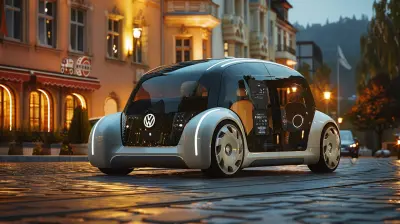
Are Autonomous Cars the Solution to Distracted Driving?

Smart Fitness Equipment: Which Gadgets Will Help You Meet Your Goals?

Ambient Lighting Tips for an Immersive Movie Experience

The Role of Developer Tools in the Microservices Era

How Big Data is Changing the Financial Industry

The Role of Wearable Tech in Personalized Fitness Coaching

Must-Have Tools for Efficient Code Review Processes

The Best Modular Workstations for Remote Workers: A Comprehensive Guide

Unlocking New Opportunities with Robotic Process Automation in Manufacturing

How Machine Learning Enhances Fraud Detection in Fintech